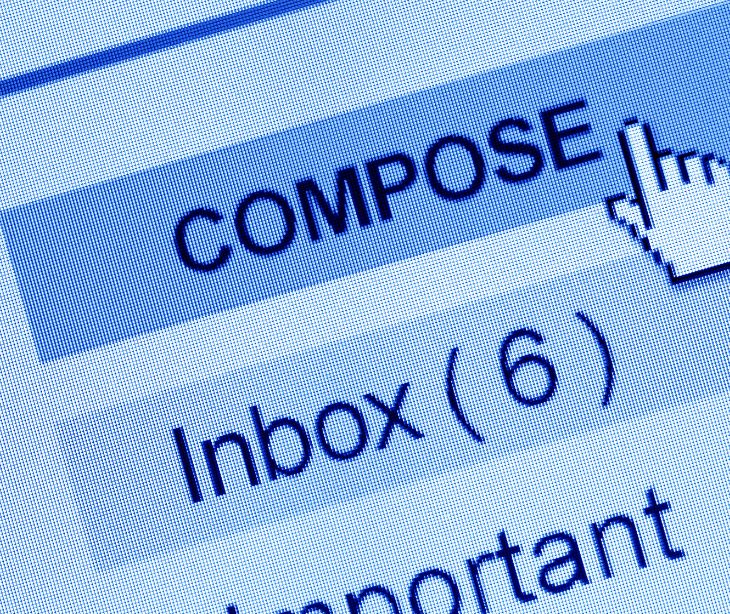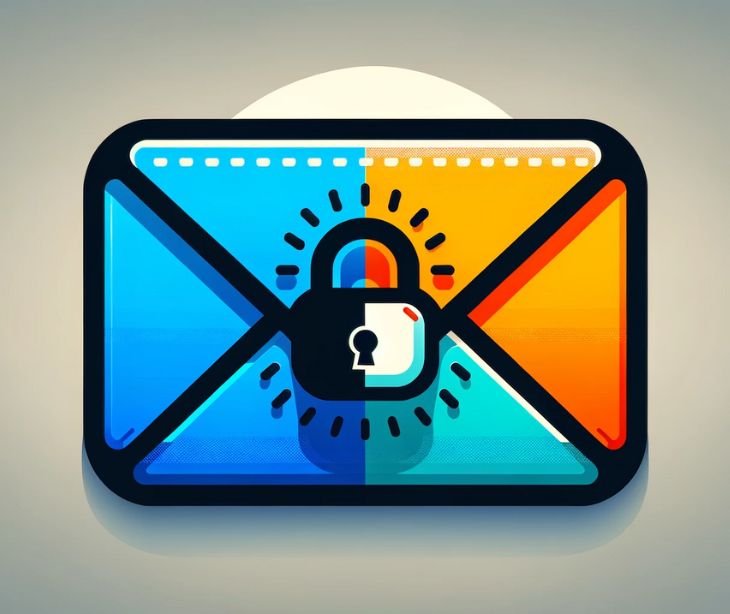4 min read
What types of healthcare-related inquiries can I make via email?
Tshedimoso Makhene
April 4, 2024

Email allows patients to make inquiries, schedule appointments, and seek medical advice conveniently. However, amidst the convenience, it's imperative to tread carefully, especially when dealing with sensitive health information and privacy laws like the Health Insurance Portability and Accountability Act (HIPAA).
Protecting sensitive information
HIPAA's Privacy Rule establishes national standards to protect individuals' medical records and other personal health information. Covered entities, including healthcare providers, health plans, and healthcare clearinghouses, must adhere to HIPAA regulations to safeguard patients' privacy rights. The Privacy Rule outlines permissible uses and disclosures of protected health information (PHI) and grants patients certain rights regarding their health information, including the right to access and request amendments to their records. According to the HHS website, “A major goal of the Privacy Rule is to assure that individuals' health information is properly protected while allowing the flow of health information needed to provide and promote high quality health care and to protect the public's health and well being. The Rule strikes a balance that permits important uses of information, while protecting the privacy of people who seek care and healing. Given that the health care marketplace is diverse, the Rule is designed to be flexible and comprehensive to cover the variety of uses and disclosures that need to be addressed.”
Learn more:
How can patients send HIPAA compliant email?
Patients can send HIPAA compliant emails by following a few steps to safeguard their sensitive health information:
- Use secure email platforms: Utilize secure email platforms provided by healthcare organizations or encrypted email services that comply with HIPAA regulations, like Paubox.
- Avoid including PHI in subject lines: Do not include PHI, such as specific medical conditions or treatment details, in the subject line of emails. Instead, use generic subject lines that do not disclose sensitive information to minimize the risk of unauthorized exposure. An exception to this rule is using a HIPAA compliant email service like Paubox, which allows you to safely send PHI, even in the subject line.
- Limit the disclosure of PHI: Only include essential information necessary to address the purpose of the email inquiry.
- Use strong authentication: Implement strong authentication methods, such as passwords or two-factor authentication, to secure access to email accounts containing PHI.
- Be cautious with attachments: Exercise caution when attaching documents containing PHI to emails. Encrypt attachments containing sensitive information and password-protect them if possible to add an extra layer of security.
- Review before sending: Before hitting send, carefully review the contents of the email to ensure that no PHI is inadvertently included in the subject line, body, or attachments (unless using a HIPAA compliant email provider). Verify recipient email addresses to avoid sending sensitive information to the wrong recipient.
Related: Educating patients about HIPAA compliant email
How can Paubox help?
Paubox helps patients send HIPAA compliant emails by providing a secure email platform that encrypts messages and attachments to ensure the confidentiality of sensitive health information.
Patients can easily sign up for a Paubox account, compose emails as they normally would, and attach any necessary files containing PHI. Paubox takes care of automatically encrypting both the email and attachments before sending them to the intended recipient. Recipients can access these encrypted emails securely without needing their own Paubox account, ensuring compliance with HIPAA regulations for both senders and recipients alike. Moreover, Paubox provides optional features such as email archiving and API integration, catering to organizations requiring more comprehensive compliance solutions.
Read more: How can my patients send me a secure HIPAA compliant email first?
Examples of healthcare-related inquiries
- Appointment scheduling: Requesting an appointment with a healthcare provider through email can be efficient and convenient. Specify preferred dates and times, ensuring clarity to facilitate scheduling.
- Medical records: Inquiring about accessing personal medical records, including test results, treatment history, and imaging reports, can be done securely via email. Provide necessary identifying information to expedite the process.
- Prescription refills: Requesting a refill for a prescription medication via email is common practice. Include essential details such as the medication name, dosage, and pharmacy information for seamless processing.
- Billing and insurance: Seeking clarification on medical bills, insurance coverage, or payment options can be initiated through email. Clearly outline your inquiries and include relevant insurance information for accurate assistance.
- Health advice: Asking general health-related questions or seeking advice on managing specific conditions or symptoms is suitable for email inquiries. Provide context and relevant details to aid healthcare providers in offering personalized guidance.
- Referrals: Requesting a referral to a specialist or another healthcare provider for further evaluation or treatment can be efficiently done via email. Include pertinent medical history and reasons for the referral to expedite the process.
- Follow-up care: Inquiring about post-treatment care instructions, rehabilitation plans, or follow-up appointments via email is beneficial for continuity of care. Ensure clarity and include any pertinent details for effective communication.
- Telemedicine: Requesting a virtual appointment or teleconsultation with a healthcare provider for non-emergency medical issues is increasingly common. Specify the nature of the appointment and preferred communication platform for seamless coordination.
- Health education materials: Asking for informational resources or educational materials on particular health topics can be initiated through email. Specify your areas of interest for tailored recommendations.
- Complaints or feedback: Providing feedback or addressing concerns regarding the quality of care, communication, or other aspects of the healthcare experience can be done respectfully via email. Clearly articulate your feedback and provide constructive suggestions for improvement.
See also:
- Can you discuss health issues with patients via email?
- What emails do not need patient authorization?
Key considerations for effective communication
Patients must prioritize privacy, precision, and professionalism in all email communications with healthcare providers, ensuring the highest standard of care and confidentiality. Here are some key considerations for sending a HIPAA compliant inquiry:
- Include relevant personal information: Ensure your email includes essential identifying information such as your full name, date of birth, and contact details to facilitate communication and verification.
- Be clear and concise: Articulate your inquiries or concerns clearly and concisely, avoiding unnecessary jargon or verbosity.
- Respect response time: Acknowledge that healthcare providers may have varying response times and be patient while awaiting a reply.
- Respect confidentiality: Prioritize patient confidentiality and avoid discussing sensitive information in unsecured emails.
FAQs
What is HIPAA compliance in email communications?
HIPAA compliance in email communications refers to adhering to the regulations outlined in HIPAA when sending emails containing PHI. This involves ensuring the confidentiality, integrity, and security of PHI during transmission and storage.
Related: What is the HIPAA Security Rule for email?
Can I use auto-fill features or templates for HIPAA compliant email inquiries?
Using auto-fill features or templates for HIPAA compliant email inquiries can streamline the process, but it's important to exercise caution to avoid inadvertently disclosing sensitive information. Ensure that templates are carefully reviewed and customized for each inquiry to prevent unauthorized disclosure of PHI.
Can I use my personal email account to send HIPAA compliant inquiries to healthcare providers?
Using personal email accounts for sending HIPAA compliant inquiries is not recommended, as personal email platforms may lack the necessary security measures to protect sensitive health information. It's advisable to use secure email platforms provided by healthcare organizations or encrypted email services specifically designed for HIPAA compliance.
Subscribe to Paubox Weekly
Every Friday we bring you the most important news from Paubox. Our aim is to make you smarter, faster.




